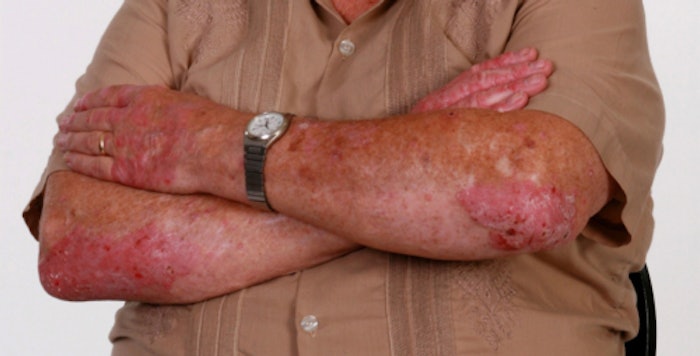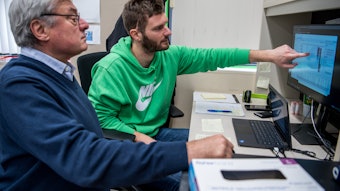
The National Psoriasis Foundation (NPF) has awarded six research grants totaling $450,000 for projects that aim to discover new treatments and a cure for these chronic diseases.
Theoharis Theoharides, MD, PhD, professor of pharmacology at Tufts University School of Medicine in Boston, received a two-year, $200,000 translational research grant to translate his laboratory findings into real-world applications to manage health. Dr. Theoharides will explore how stress contributes to psoriasis and how molecules derived from chamomile might interrupt this psoriasis-stress connection.
Five researchers each received a one-year, $50,000 discovery grant for early-stage research to advance basic understanding of psoriasis and psoriatic arthritis.
- Onur Boyman, MD, of the University of Zurich in Switzerland, will explore the role of cytokines and a subset of immune cells known as T-cells for their roles in the development of psoriasis. By identifying the extent to which different molecules and immune cells contribute to psoriasis, Dr. Boyman hopes to identify promising targets for potential new psoriasis therapies.
- Cong-Qiu Chu, MD, PhD, assistant professor at Oregon Health & Science University and the Portland VA Medical Center, received The A. Marilyn Sime Discovery Grant to examine a new class of therapeutic agents known as small interfering RNA, which specifically target a key cell in psoriasis lesions and can be applied topically. Dr. Chu hopes to identify potential new topical treatments for mild to moderate psoriasis.
- Dafna Gladman, MD, FRCPC, professor of medicine at the University of Toronto, received TheLaub Family Discovery Grant to identify if psoriasis and psoriatic arthritis is passed to offspring more frequently by fathers than mothers. Specifically, Dr. Gladman will test the hypothesis that DNA in psoriatic disease patients' sperm carries markers that predispose their children to psoriatic diseases. Her study could transform our understanding of the genetic link to psoriasis and psoriatic arthritis and provide tools to help clinicians diagnose and manage these diseases earlier.
- Matthew Hayden, MD, PhD, assistant professor of dermatology at Columbia University, was awarded TheOstrow Graff Family Discovery Grant to investigate how the tumor necrosis factor-alpha and Interleukin 17 molecules, which are key to the development of inflammation, work together to promote psoriasis. Dr. Hayden hopes to identify new ways to treat or prevent psoriasis.
- Nicole Ward, PhD, assistant professor of dermatology at Case Western Reserve University in Cleveland, and recipient of The Lozick Discovery Research Grant, aims to build on her earlier work revealing a possible link to an enzyme called Kallikrein 6 in early stages of psoriasis. She'll test the hypothesis that this enzyme is a key player in the development of the disease, in hopes of identifying a new target for psoriasis treatment.
"National Psoriasis Foundation is dedicated to increasing the number of scientists, dollars and projects dedicated to psoriatic diseases," said Randy Beranek, National Psoriasis Foundation president and CEO. "We are the only organization funding these types of promising research projects, each of which will move us faster toward finding a cure, which is our highest priority." To learn about the NPF research grant program visit www.psoriasis.org/research.











